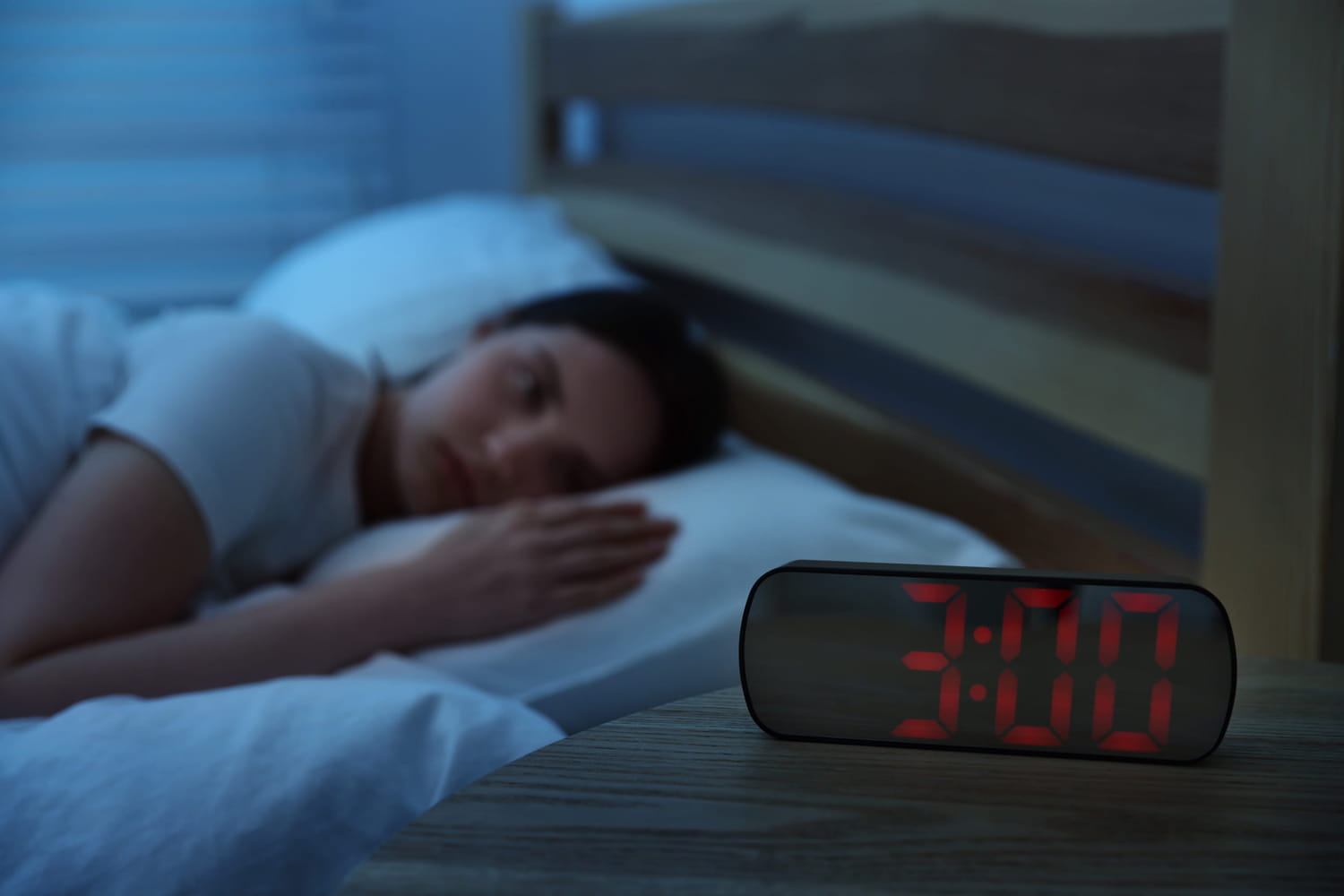This is not classic insomnia, but a sign of a mistake that many people make.
Many French people are affected by sleep disorders. If they become regular, they can significantly harm overall health. Often trivialized, systematically waking up at the same time, generally around 3 or 4 a.m., is however not trivial. It is not inevitable, but most often the consequence of a biological shift.
Every night, we have 4 to 6 sleep cycles of around 90 minutes. At the end of each cycle, a micro-awakening of 15 to 30 seconds occurs naturally, so short that we immediately forget about it. Waking up at 3 or 4 a.m. signals the end of a cycle. The problem occurs when this alarm sets in and exceeds 30 minutes. It often indicates a “failure” of melatonin, the hormone supposed to maintain sleep, whose levels drop too early in the night.
If you are “deficient” in melatonin, it is often a sign of a mismatch between your rhythm of life and your biology. As Dr. Huberman, an American neuroscientist, explains on Instagram: “It’s easier to stay awake than to force yourself to sleep.” Clearly, if your body asks for rest at 9:30 p.m. but you stay up until 11 p.m., you consume your stock of melatonin before time. “Some people are simply programmed to fall asleep earlier; their body clock is ahead. Trying to push back bedtime can induce that 3 a.m. wake-up call.”
This is explained by your “phenotype”, that is to say your sleeper profile. Many people go to bed late thinking they’re an evening person, but that 3 a.m. wake-up call gives them away: they’re actually early sleepers. By staying up late, you disrupt the release of melatonin and cause it to drop prematurely. Dr. Hyman insists: “If you’re tired of waking up at 3 a.m., don’t fight your biology…learn to live with it.” To correct this shift, simply go to bed an hour earlier.
To avoid missing your sleep window, listen for the first signs of fatigue: yawning, mental fog, heavy eyelids… As falling asleep is a gradual phenomenon (20 to 30 minutes), the ideal is to establish a soothing routine: reading or herbal tea, absolutely avoiding screens. “Expose yourself to morning light to anchor your rhythm, dim the lights in the evening and respect your biological clock”recommends Dr. Hyman. Finally, maintain regular schedules, even on weekends, and consult a doctor if the problems persist.








